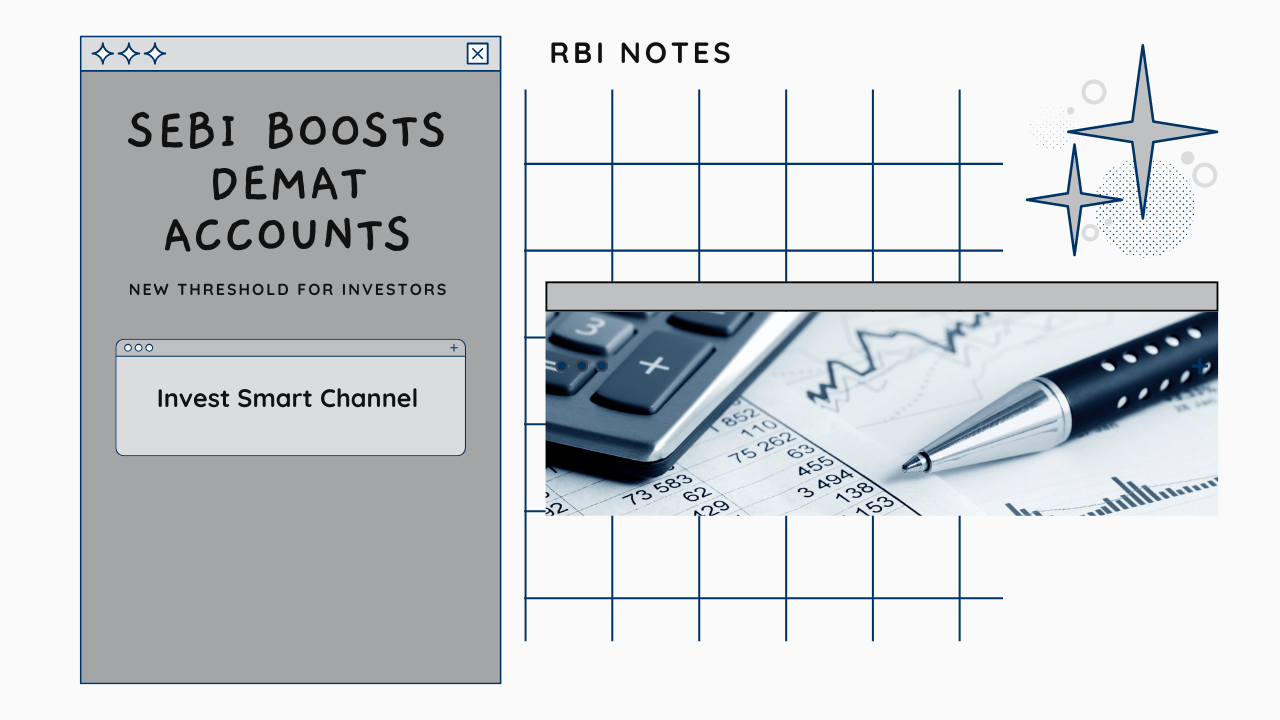In a significant move aimed at enhancing the participation of small investors in the securities market, the Securities and Exchange Board of India (SEBI) announced on Friday an increase in the threshold for the Basic Service Demat Account (BSDA) from the current Rs 2 lakh to Rs 10 lakh. This change, set to take effect from September 1, 2024, is expected to encourage more small investors to engage in stock market trading and ensure their financial inclusion.
Key Changes and Implications:
- Increased Threshold for BSDA:
- The value of securities that can be held in a BSDA has been raised to Rs 10 lakh, up from the previous limit of Rs 2 lakh.
- This move aims to lower the barriers to entry for small investors, allowing them to participate more actively in the securities market without the burden of high maintenance costs associated with regular demat accounts.
- Eligibility Criteria:
- To qualify for a BSDA, an investor must meet specific criteria:
- The investor can only have one demat account as the sole or first holder.
- The investor must not have any other BSDA across all depositories.
- The total value of securities in the account, including both debt and non-debt securities, must not exceed Rs 10 lakh at any time.
- To qualify for a BSDA, an investor must meet specific criteria:
- Maintenance Charges:
- For portfolio values up to Rs 4 lakh, there will be no annual maintenance charges (AMC).
- For portfolio values exceeding Rs 4 lakh but below Rs 10 lakh, an AMC of Rs 100 will be charged.
- If the portfolio value surpasses Rs 10 lakh, the BSDA will automatically be converted into a regular demat account.
- Additional Benefits:
- BSDA holders will receive electronic statements free of cost.
- Physical statements will be available for a charge of Rs 25 per statement.
- Mandatory Review by Depository Participants (DPs):
- DPs are required to open only BSDA for eligible accounts unless the account holder explicitly opts for a regular demat account.
- Existing eligible demat accounts must be reviewed and converted to BSDA within two months, with ongoing reviews at the end of each billing cycle.
SEBI’s Strategic Initiative
This move aligns with SEBI’s broader strategy to enhance financial inclusion by making market participation more accessible and affordable for retail investors, especially those with smaller portfolios. By reducing the cost burden and increasing the threshold for BSDA, SEBI aims to democratize access to the securities market, potentially leading to greater retail participation and a more vibrant market.
Earlier this month, SEBI released a consultation paper on this topic, indicating the regulator’s commitment to continuously refining its policies to better serve the needs of the market and its participants.
With SEBI’s recent initiative to raise the threshold for the Basic Service Demat Account (BSDA) to Rs 10 lakh, small investors can now participate more actively in the securities market. This move aligns well with the goals of many aspirants preparing for competitive exams like RBI Grade B, as a strong understanding of the financial market is essential for success. Whether studying the RBI Grade B exam pattern, exploring the RBI Grade B syllabus, or calculating the RBI Grade B salary, understanding these market developments is crucial. Aspiring candidates for government job exams will also find this knowledge invaluable, as it not only aids in exam preparation but also helps them make informed decisions about their personal investments.


